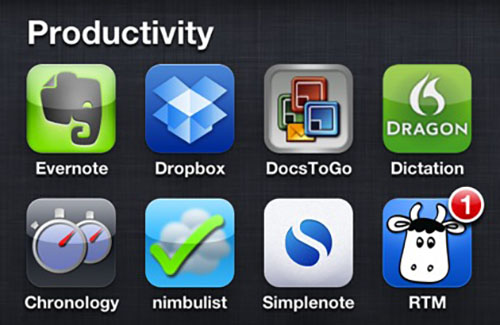Was reading this article earlier today, and while the actual topic of the article is interesting — essentially, a company in Berlin made an app that makes the concept of a to-do list “fun” (although I’d argue a lot of people get a perverse sense of enjoyment from dealing with to-do lists) — there’s something buried within the article that’s even more interesting. Productivity apps are considered “the next frontier” in mobile apps by some; the market for them has grown about 150 percent just in the past year, and there’s no clear winner. (Office for iPad has a shot to dominate here.)
This is the interesting thing about all this: while we live in a very app-centric world, for sure, the sheer idea behind apps involves distraction. Think about it: you need to look at a screen to do something, or to remember / realize what you need to do next. That takes you off-task from actually doing it; distractions like that ultimately reduce the likelihood that you’ll eventually get back on task at all. So there’s an inherent contradiction here: everyone wants to get in the mobile productivity app space because it’s growing and there’s a chance to make money there, yet the sheer proliferation of mobile productivity apps really probably won’t make anyone more productive at all. Phrased another way, how busy you are and how you choose to manage your time aren’t necessarily things that need apps, per se. It’s more about contextualizing your day and prioritizing based off that, not based off any fire drills that may ensue. The Meez, in other words. We’ve discussed this before on this blog. Start with everything in its right place, and define what success would look like in very clear terms. That, and a couple of Post-It Notes, is likely more valuable than an app.
I’m all for gamification in the world of ripping through your goals for a given day/week, but I do fear the fact that you need to switch over to another screen — and see flashy things happening — in order to do so is kind of defeating the point.
